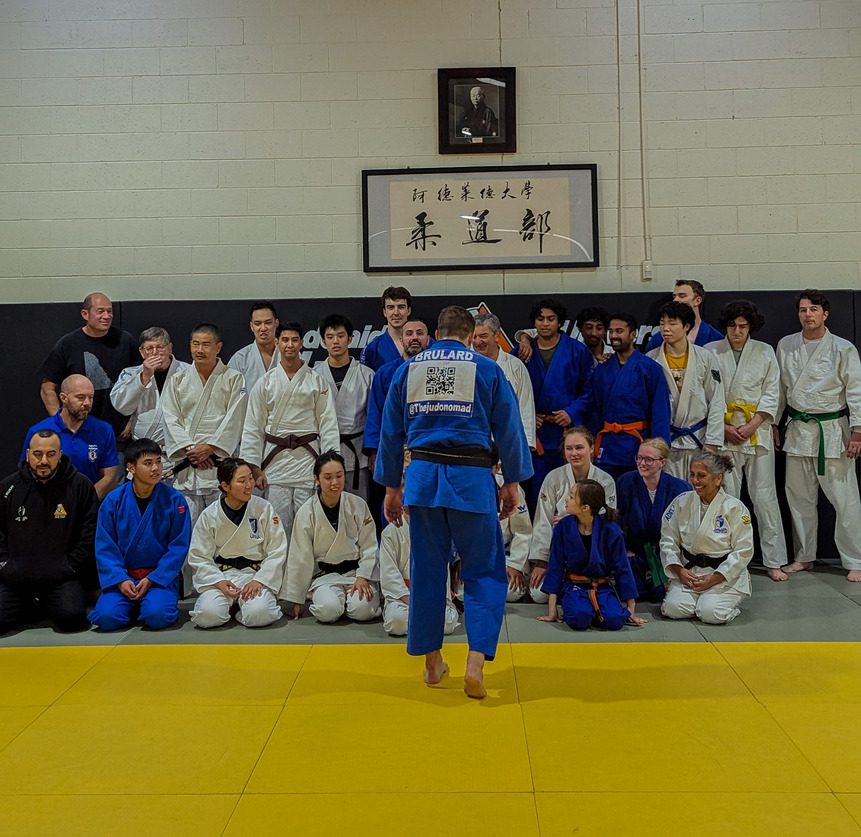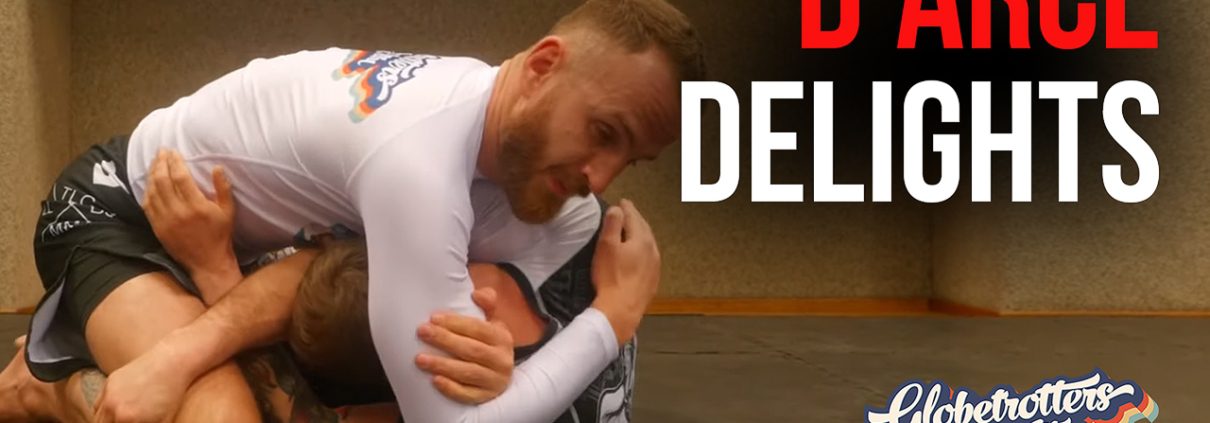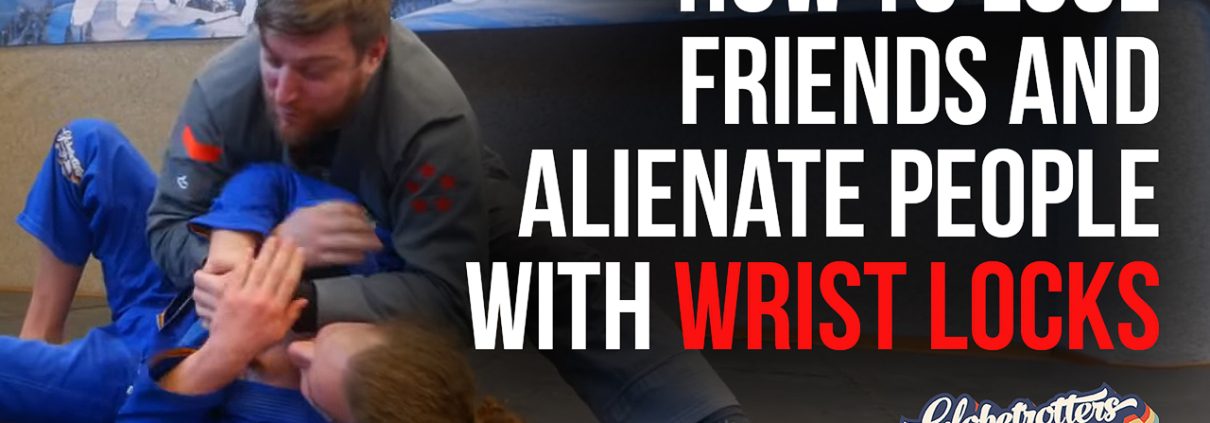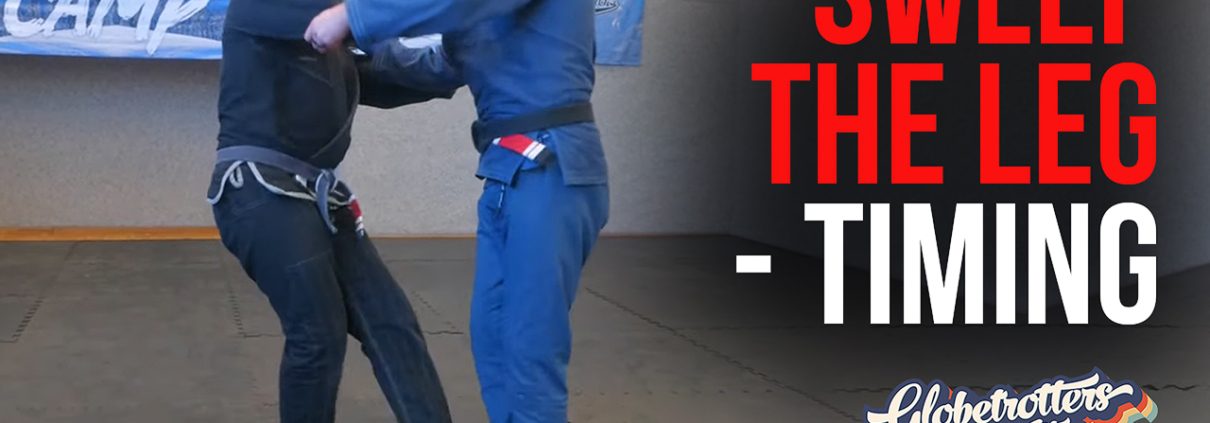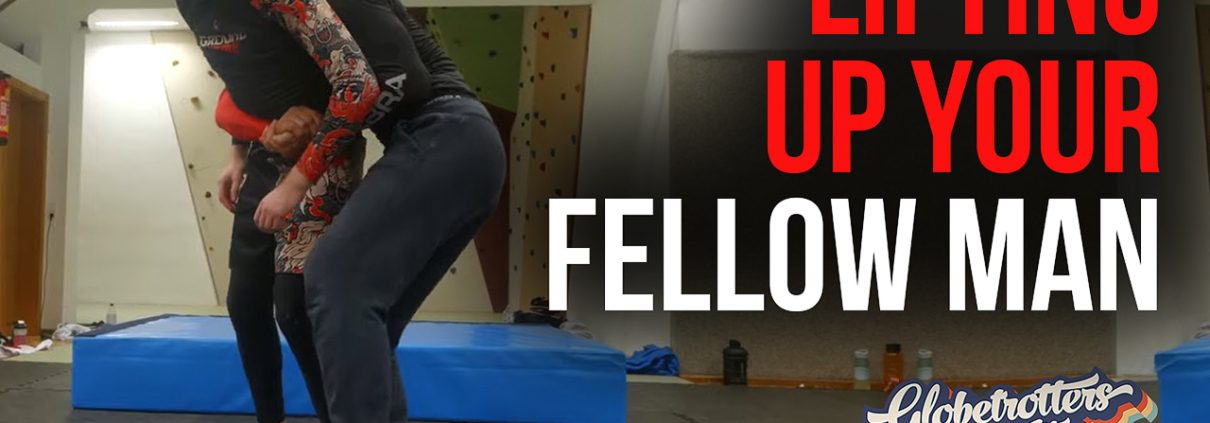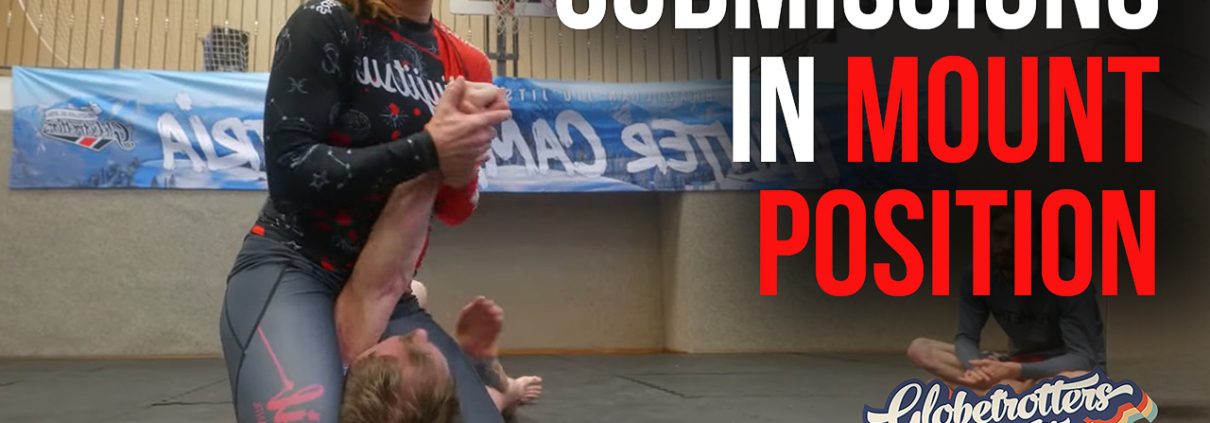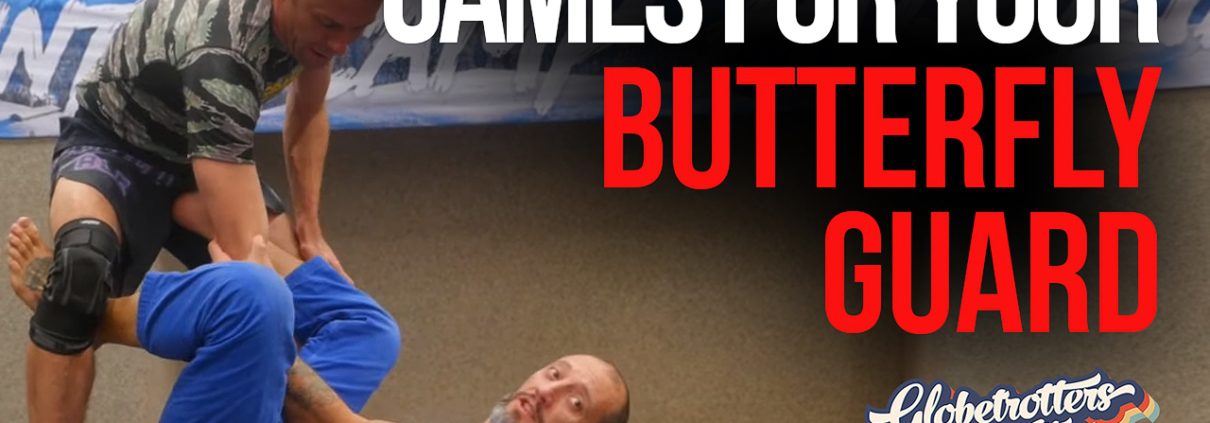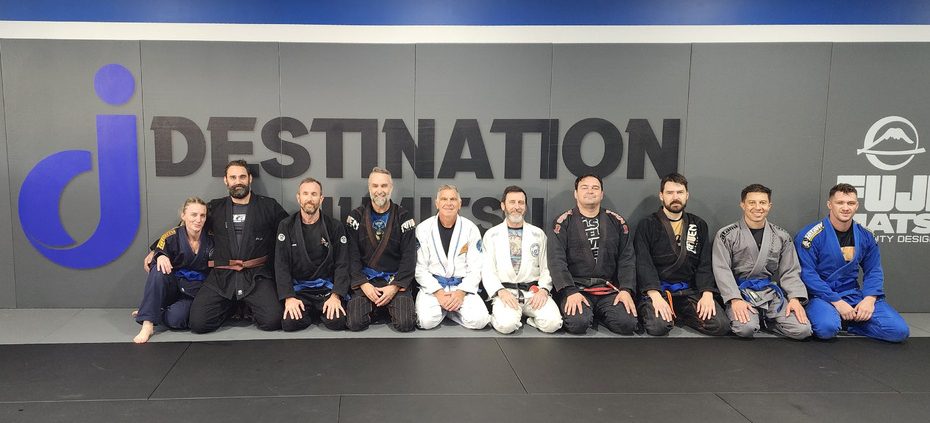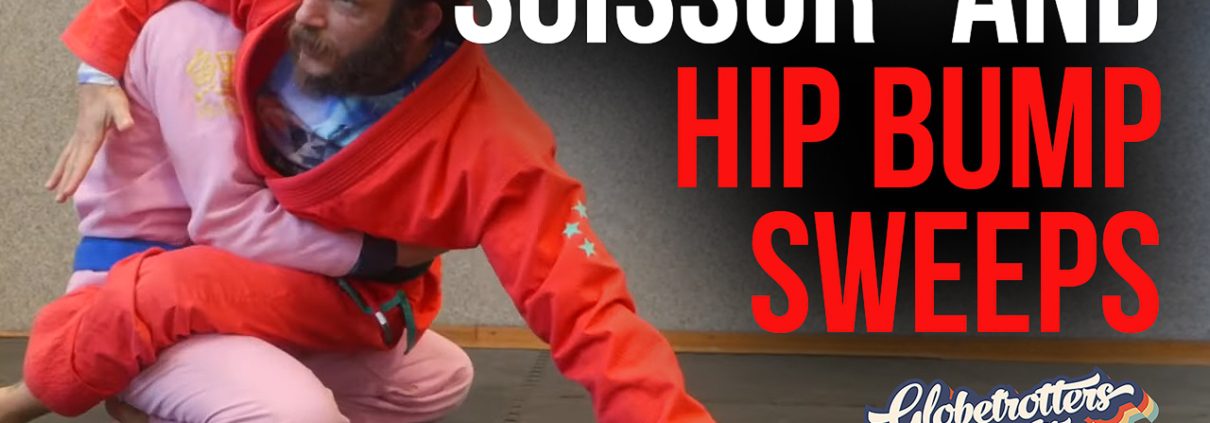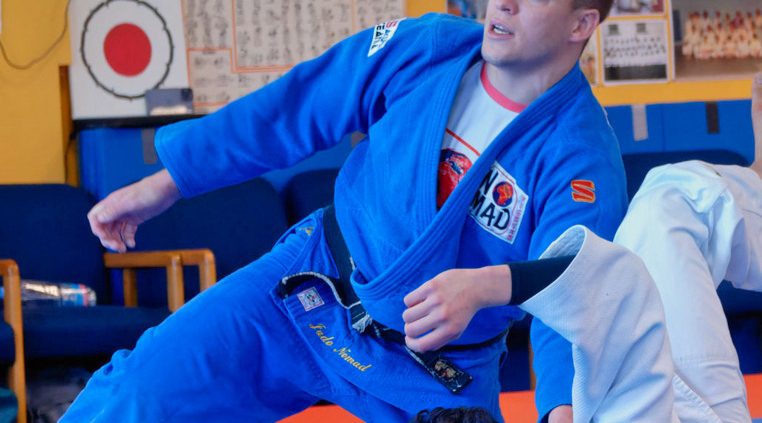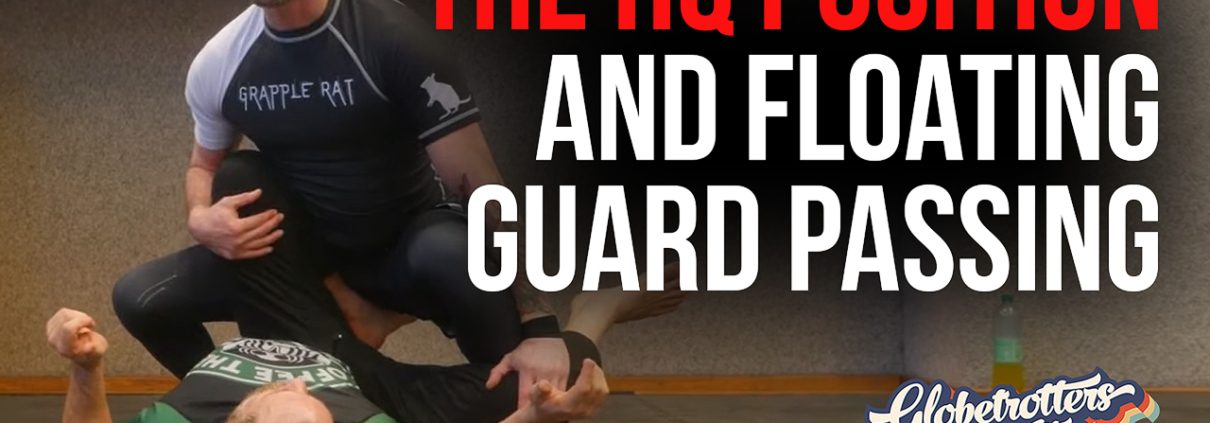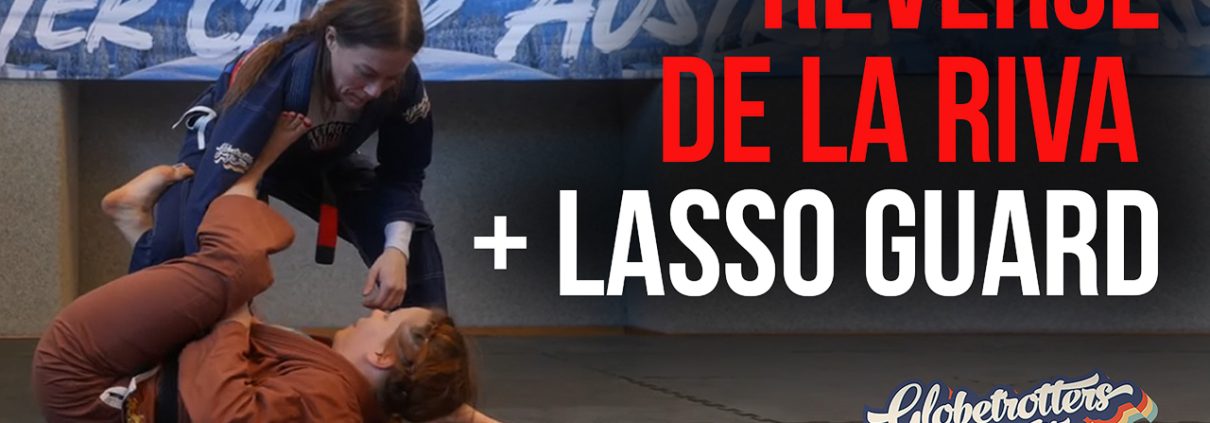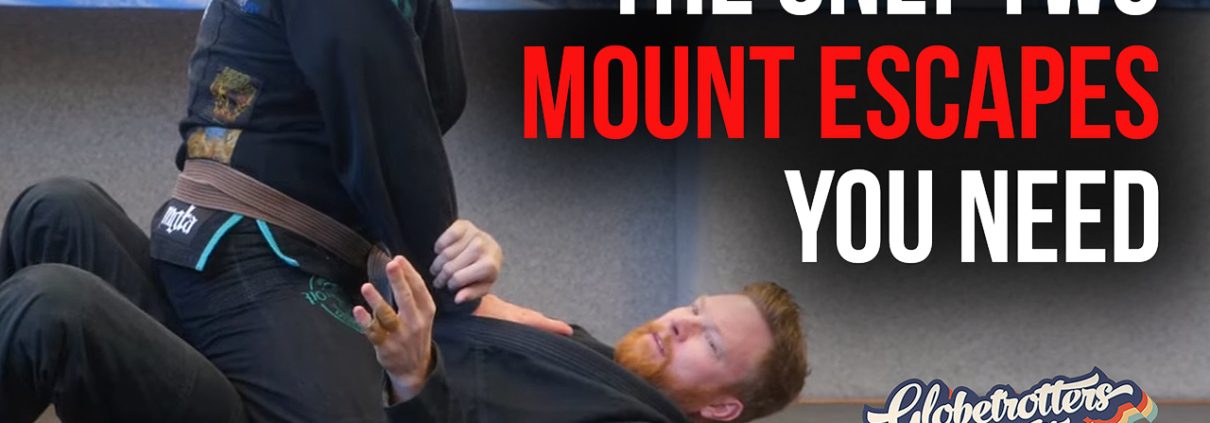Archive for month: August, 2024
Featured Camp Instructor: Alexander Backus – BJJ Globetrotters
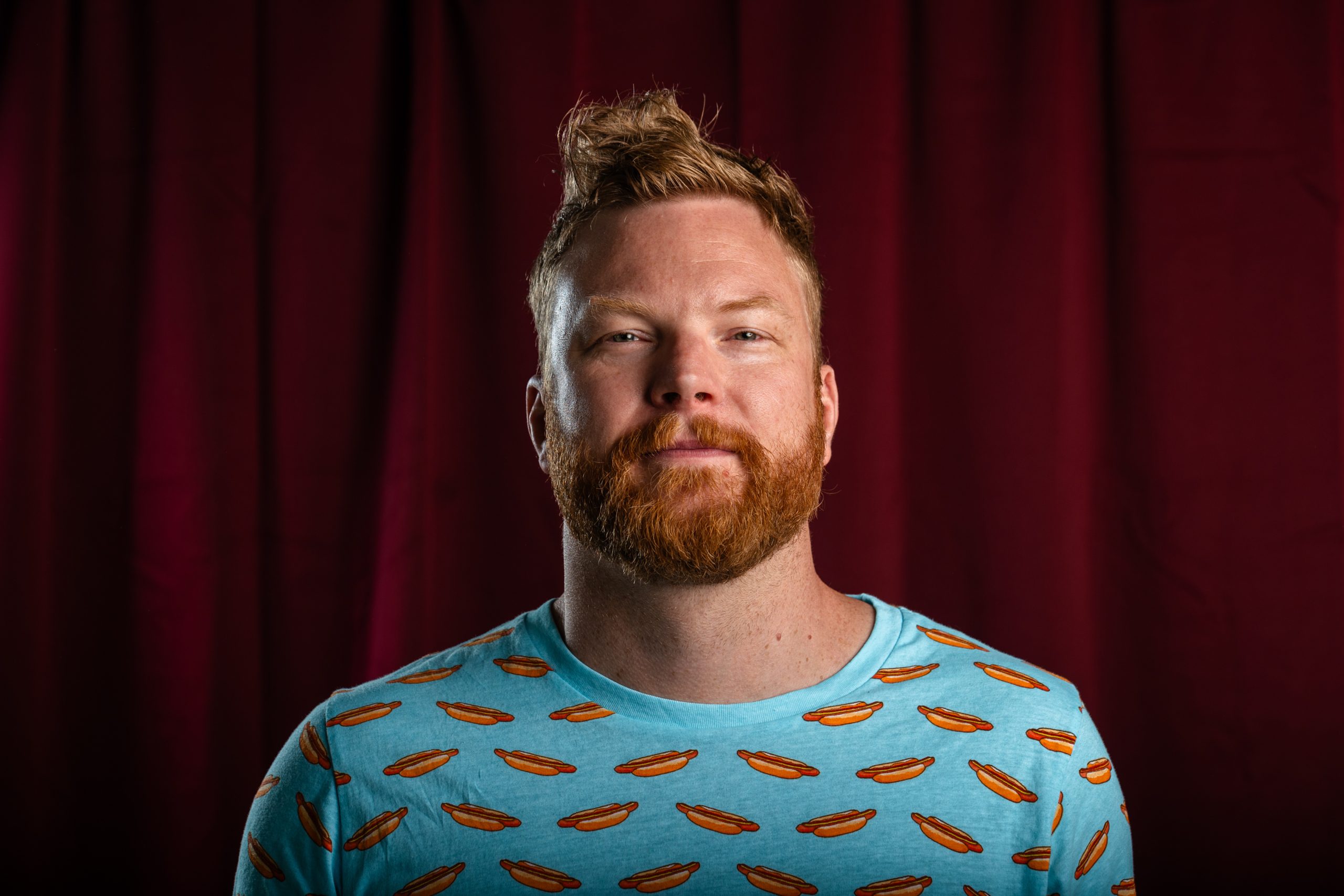
Alexander Backus – BJJ Globetrotters
Age: 43
Belt: Black
Profession: Forensic psychiatric nurse
Started training (year): 2011
City/country: Örebro, Sweden![]()
Main achievements in Brazilian Jiu Jitsu:
Still having the most fun and enjoy playing the game.
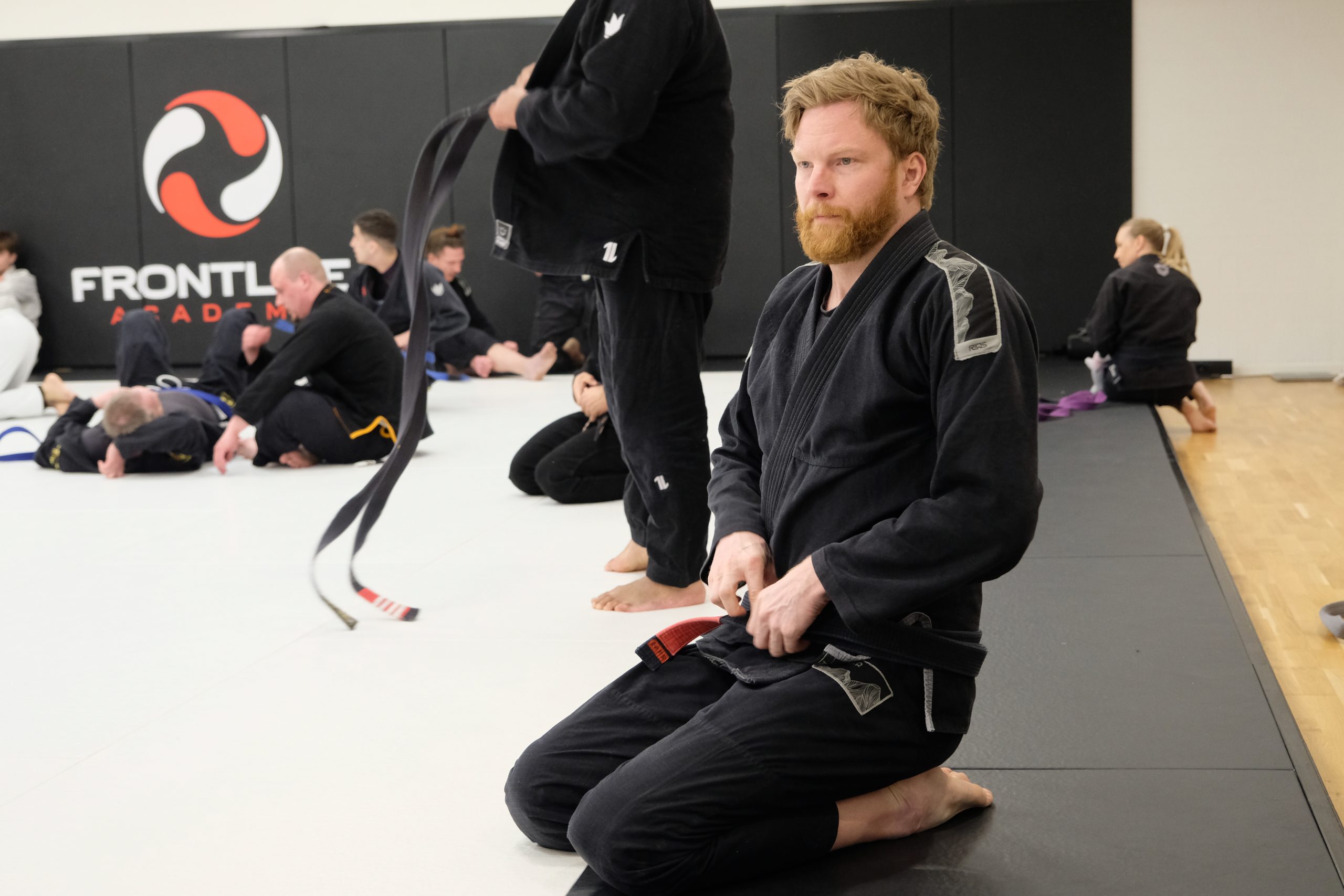
Which Globetrotters camps have you attended:
Tallinn Spring Camp, Heidelberg and Austria Winter Camp
Which camp has been your favorite so far?
Tallinn Spring Camp 2022 because it was the first camp and for personal growth and connecting to the community. Really enjoyed just having fun together and learning alot.
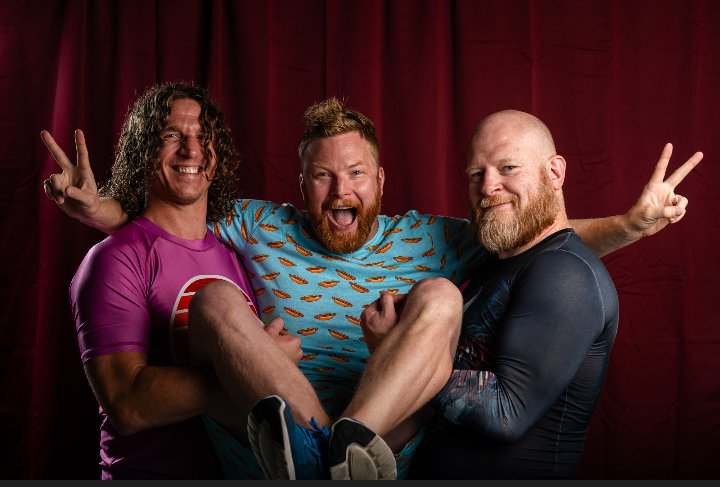
Alexander Backus – BJJ Globetrotters Spring Camp
Favorite stories/moments from the camps?
Winter Camp when I started and lost a snowball fight with 20 ish campers from the balcony with no shirt on and with no snow. And like a cliche from an old move the american friend came to the rescue with a ton of snow so we could fight back.
That time in Heidelberg when I was told that everything closes at 01 o’clock in Heidelberg. I accepted the challenge and Heidelberg did not close :)
Every open mat at every camp. I learn so much and that is the best moments for me. Just to roll with so many awesome people with different styles and to share knowledge.
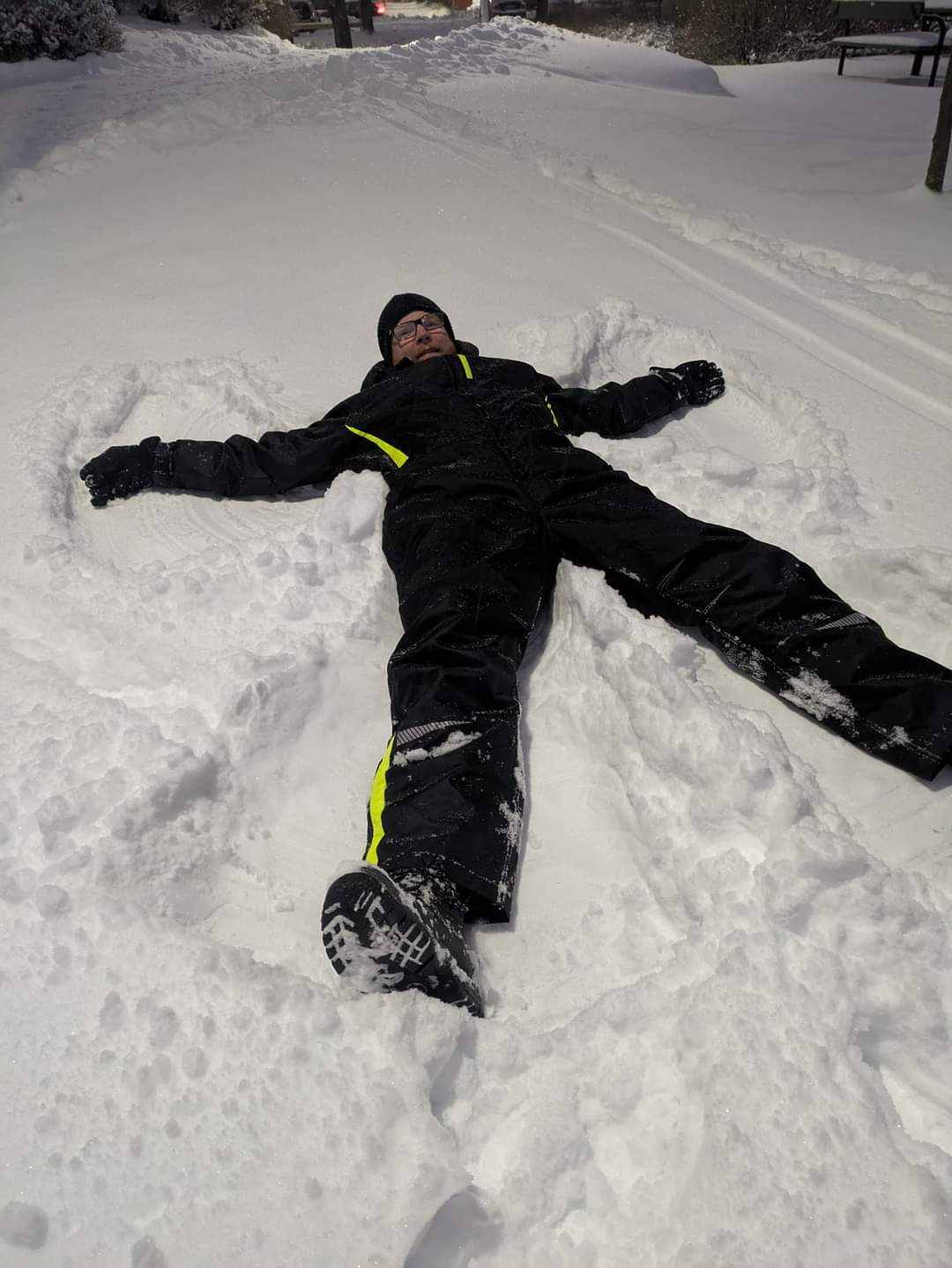
Alexander Backus – BJJ Globetrotters Winter Camp
Your favorite class/classes to teach at camp?
The next class I am teaching is always my favorite :) Love to teach so every class is special. Generally I like to teach fundamental stuff that everybody can do but at an advance level.
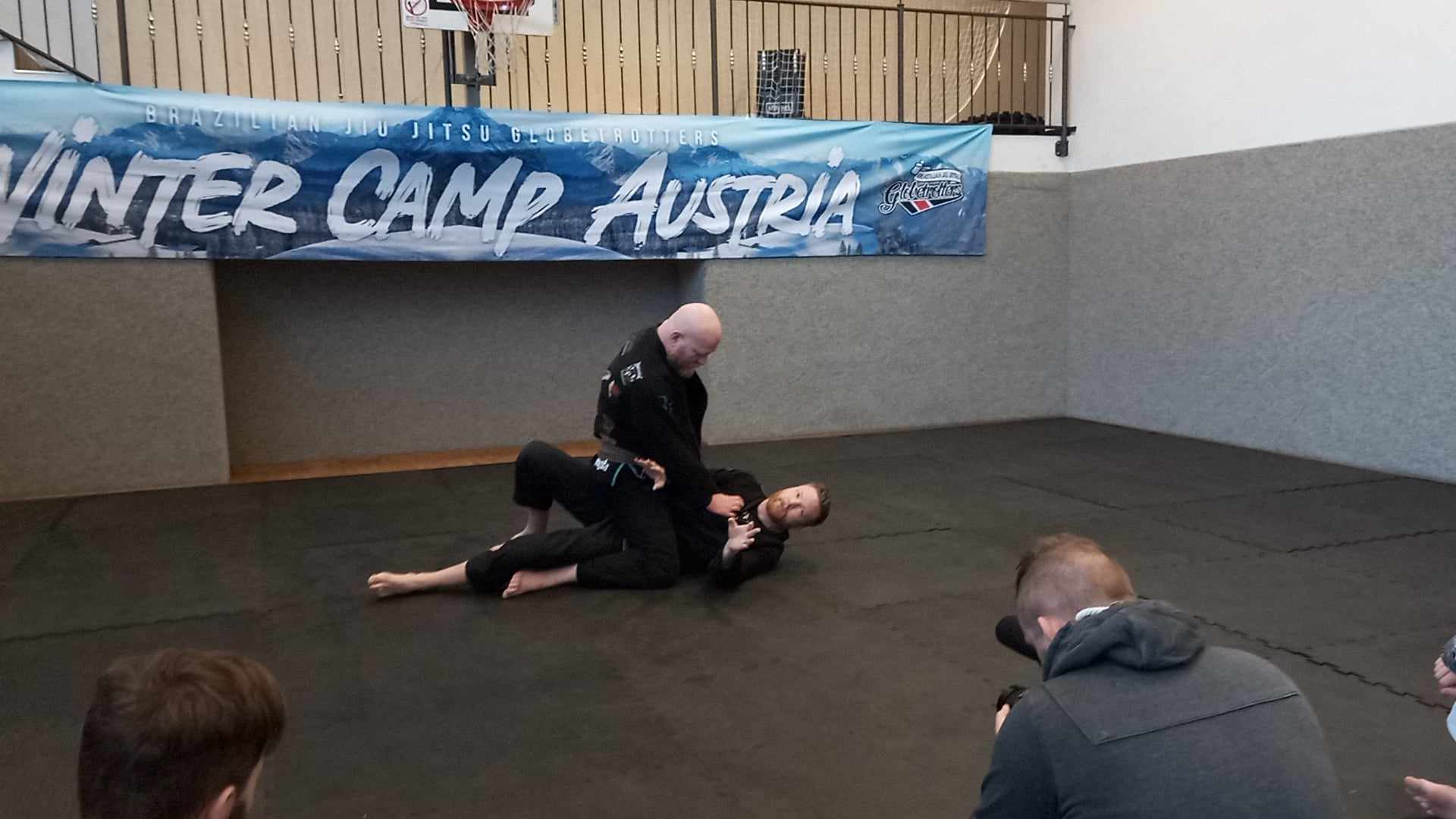
Anything else you want to add to your profile:
If you are not having fun when you are rolling. You are doing something wrong.
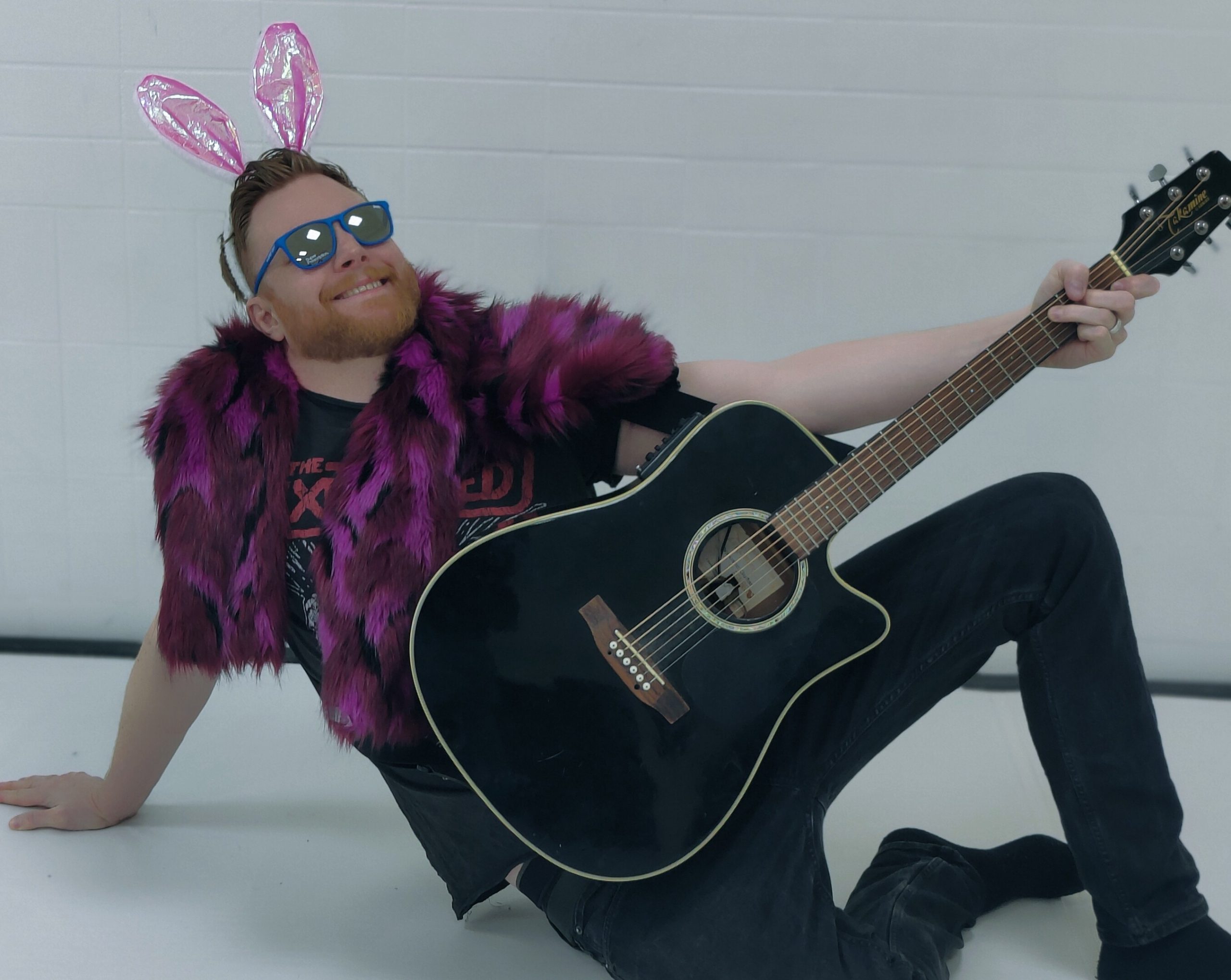
***
Alexander Backus – BJJ Globetrotters instructor
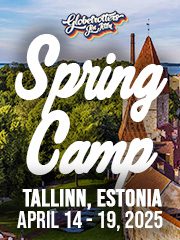 |
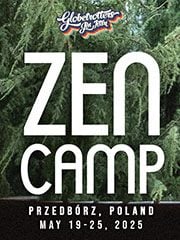 |
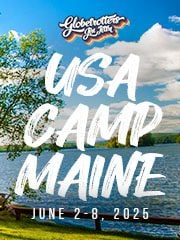 |
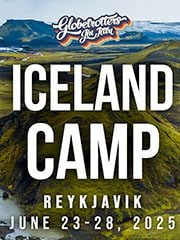 |
 |
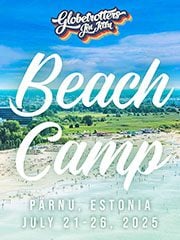 |
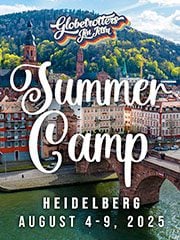 |
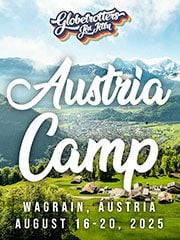 |

|
 |
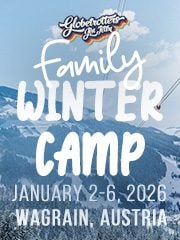 |
 |
 |
Featured affiliated academy: Destination Jiu Jitsu, Australia
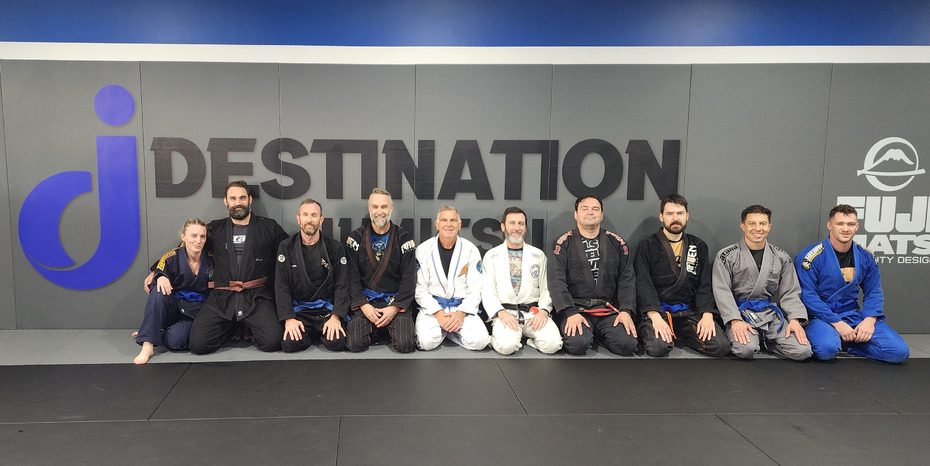
Where is the gym located?
Engadine, Southern Sydney (New South Wales in Australia).
How many people train there?
16 and growing.
Is the gym growing – if so by how many new members each month or year?
Yes – 4-5 a month.
What are the highest and lowest belt grades training?
We have all belts – from brand new white belts up to brown in classes.
When did the gym open?
We opened in December 2022 nearby, in a community hall in Yarrawarrah (the next suburb). We decided to take the leap and open a permanent space late in 2023, because it was increasingly difficult to manage consistent times for classes. We opened our permanent space in Engadine, Easter 2024 (April). The permanent space allows us to offer way more classes for adults and kids.
Our space was formerly a crystal healing retail space, so it took a lot of renovations and approvals from council to get the place open!
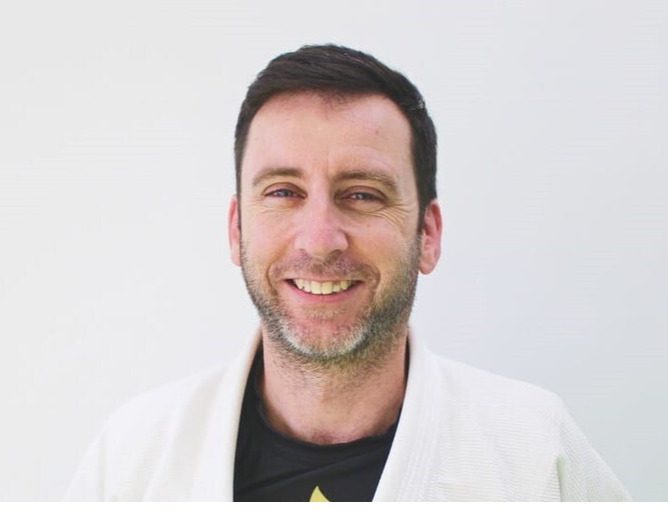
Some facts about you:
Name: Trenton Laurance
Age: 51
Belt: Black
Profession: Public servant – senior investigator (day job) / BJJ coach
Years in BJJ: 16
Other martial arts: I originally started training at 16 years old in Wing Chun kung-fu. I’ve also dabbled in Muay Thai and Boxing, and I’ve trained in judo, wrestling and MMA.
Currently living in: Southern Sydney (Sutherland Shire), New South Wales
Originally from: Perth, Western Australia
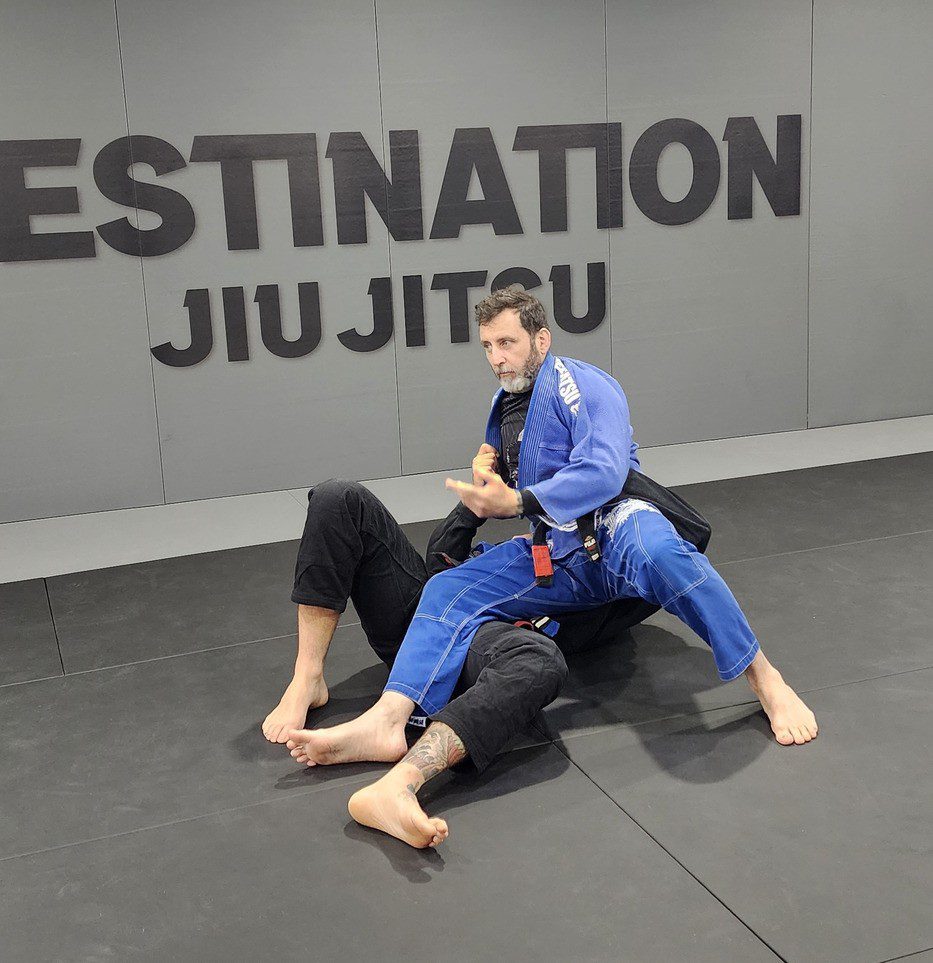
Please tell us the story of how Destination Jiu Jitsu, Australia came into existence
I was coaching at some other gyms from the time I was a brown belt. The last gym I coached at for an extended period (as head coach of their BJJ program for 6 to 7 years) went through some “cultural changes”, and it seemed that my services were no longer required (lol).
After this experience, I was going to stop coaching and just find a non-political place to train once a week. However, when I left that gym, some of my students wanted to come and train with me, rather than staying at the place we were training. This prompted me to look at how I could facilitate this, as I enjoyed coaching and socialising with my (former) students. I wanted to build a place where people could learn BJJ and have fun at the same time. We worked out what was important to us (what are our values), and how we could build an inclusive, positive culture at the gym. Part of this was rejecting a lot of ideas that we found annoying or did not help to build that culture, and we wanted to remove barriers to training – e.g. forcing students to spend hundreds of dollars on gym branded gis, rashies, paying for promotions, etc. in order for them to train in our space. We also thought about what sort of gym environment we wanted to train in, and so included things like wall paddings, quality mats, and a new bathroom and changing area that people would actually want to use (and didn’t appear to be the bathroom from Trainspotting).
A big goal of ours is to create a modern, adult learning environment, as we value personal growth and understand that people who train with us are clients, and they should be able to get what they pay for. They’re not joining a cult, and we understand that adults have lives and responsibilities, so we’re flexible with memberships, etc. If students from other gyms want to train with us, no worries! We provide a service to the community.
We’re also keen for travellers to visit us and exchange skills and knowledge, and to learn about other cultures.
Tell us about the people that train in the gym – who are they?
We have a mixture of professionals, trades people, and kids. Most of our adult students are north of 30 years, with their own careers and families. Many of our students have trained for a while and most have at least a blue belt. Other students new to BJJ have trained in other martial arts.
Why do they train in Destination Jiu Jitsu, Australia?
Our students train for a variety of different reasons. Many train for fun, and for social interaction. A number also train as their primary exercise. We are trying to build a supportive community in the gym, and regularly have informal catch-ups at nearby cafes, bars, etc. after class. We have lots of great options very close by (a micro-brewery, pizza places, burgers and all-day breakfasts, we’re spoiled for choice).
While we welcome competitors to come and train, most of our students don’t have this as a goal. Our students have lives and responsibilities, so BJJ is their way of having fun, getting exercise and socialising, rather than it being a super competitive place where competing is a primary goal.
What are some of the challenges of running a BJJ gym in general, and in your area specifically?
Attracting women to train, and keeping them. It’s very difficult to attract them to trial a class, and convert them into members.
There is a lot of opportunity as there are many people in the suburb we’re located, but also a lot of competition for kids’ activities. We’re currently working on community-based options to advertise/promote our gym, and explain who we are and why they should train with us. It’s sometimes difficult to get people to see the real value of training BJJ.
Satisfying all the council requirements to even open was a challenge! We wanted to create a space in an area with public transport and amenities nearby, and there are very few “industrial” spaces in our chosen area. In Australia, there is a lot of red tape if you need to get approvals as part of your gym space (we needed to change the usage of our space from a retail/shop, to an indoor recreation space), and this was a huge learning curve.
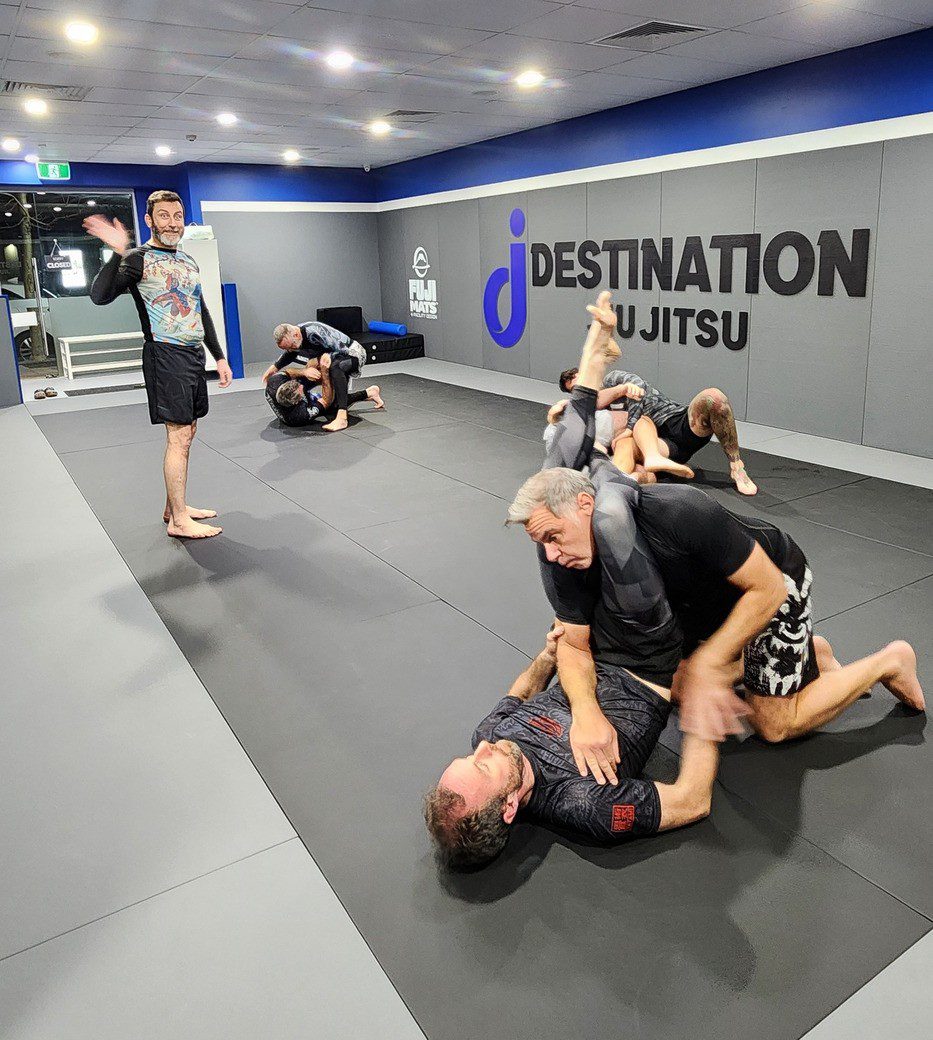
How do you see the future for BJJ in your area?
Jiu Jitsu seems to be getting more popular in the area. This is reflected by more independent gyms popping up in the wider area (as well as the larger brand-name gyms). I hope it continues to grow and I want people to see the real value of BJJ.
What’s the best thing about Destination Jiu Jitsu, Australia?
The people – we have a great core group of people who are friendly and respectful. We also have climate control (air conditioning, heating) and the best mats/equipment in the area. We’re trying to create a good, inclusive vibe and make it more than just a place where people train and leave. We also don’t follow all the BJJ traditional norms – we treat our gym as an adult learning environment. You won’t see anyone bowing to pictures on a wall. You can also wear what you like to train; we don’t force people to buy our uniforms.
What would you recommend Globetrotters to see in your area apart from the inside of your gym?
The beaches in the area are awesome and great for surfing and swimming (go to Cronulla and skip Bondi). The local National parks are amazing too (heaps of Grammable photo opportunities). The beaches are a short drive from us, and the forests in the National park are beautiful. There is also a wildlife park (Symbio) about 20 minutes from us where you can pet kangaroos and koalas. The ‘coat hanger’ (Sydney Harbour Bridge) and Opera House – the city is only 35 minutes away on the train. Go south for a donut at country town Berri and check out the beautiful white beach sands at Huskisson (2 hours away).
—-
Thanks for sharing! If you’d like to visit Destination Jiu Jitsu, Australia you can contact them here.
Featured traveller: Julien Brulard – BJJ Globetrotters
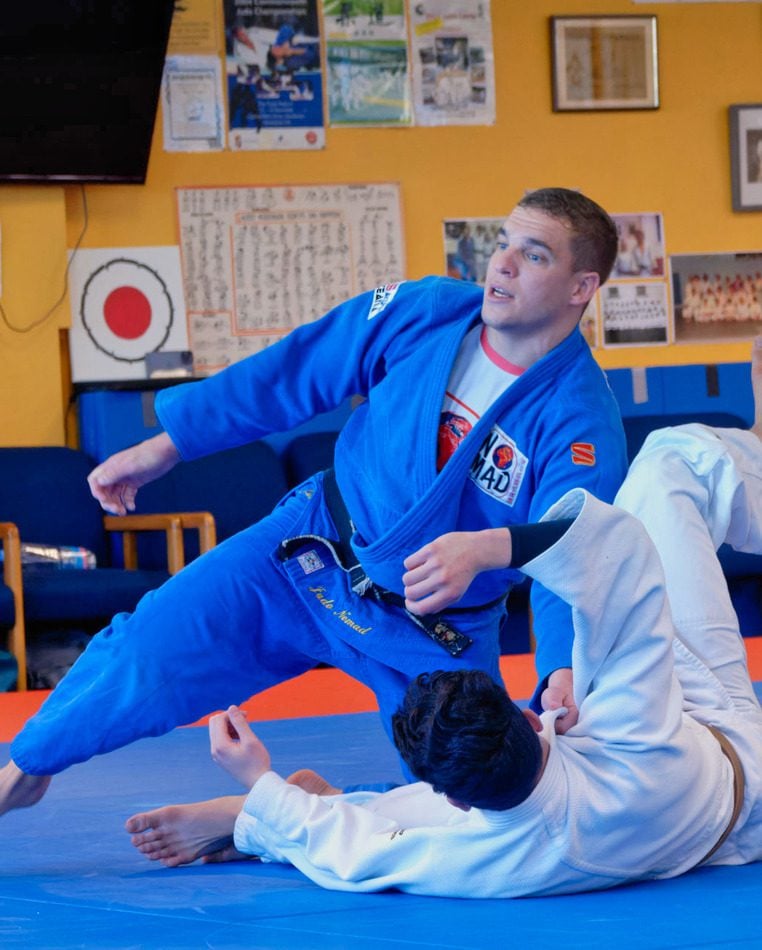
Age: 31
Belt: Black (Judo)
Profession: Teacher
How many years in BJJ Judo: 27
Other martial arts: Karate, BJJ, MMA
Where do you live: Everywhere and nowhere
Where are you from: France
Other fun or curious information you would like to share: With the Judo Nomad project, I’ve had the opportunity to teach Japanese Jiujitsu, BJJ, and MMA. All those sports are martial arts that I never actually tried, and yet I taught either BJJ or MMA (Grappling) in Bulgaria, North Macedonia, Thailand, Cambodia, Indonesia, and Australia…
Our disciplines are always linked somehow, and it is really interesting (if not more) to teach a class for people of other sports.
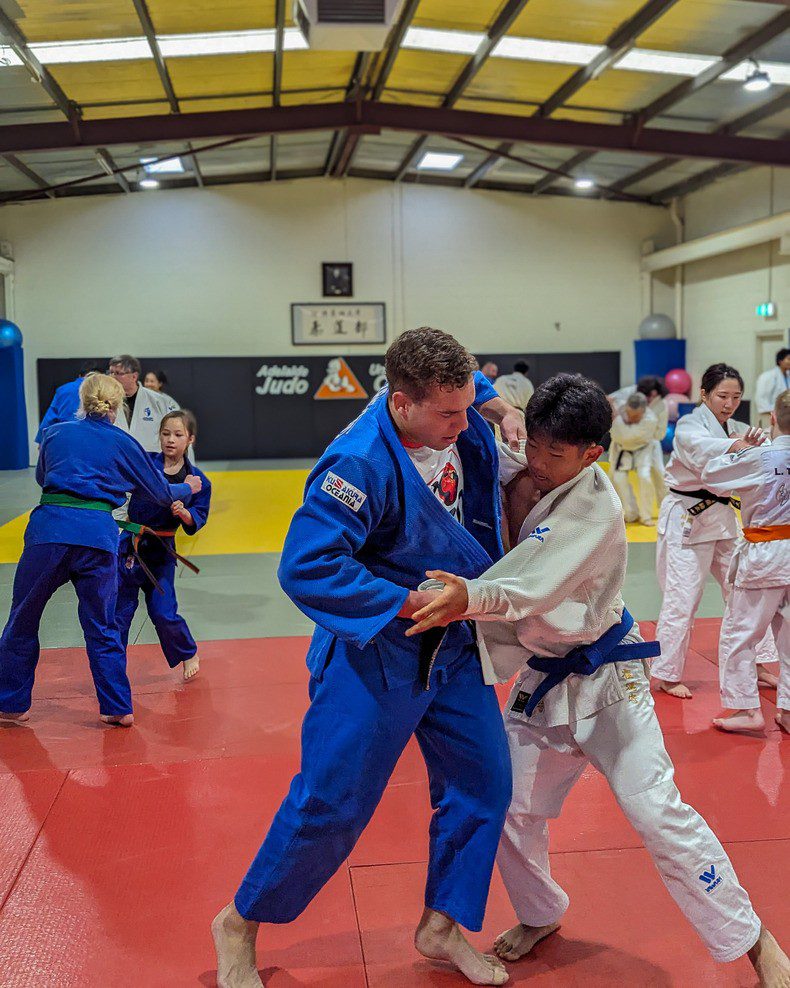
Julien Brulard – BJJ Globetrotters
Tell us what inspired you to travel and train?
Living in Japan for nearly three years with the goal of becoming a better judoka profoundly shaped my understanding of the sport. The philosophy and depth of judo I encountered there were far beyond anything I had learned in 20 years of practice. During my time in Japan, I developed a passion for teaching. As I traveled to nearby countries, I found myself frequently invited to teach, and these experiences were incredibly rewarding and friendly, sparking the idea for my project.
I dedicated many years to studying and achieving various certifications from the French Judo Federation, culminating in a master’s degree in high-level sport performance. Despite these accomplishments, I found it challenging to secure the job I aspired to—being part of a national staff or a special judo school. This realization led me to pursue my own project, fueled by my dreams and the inspiration I gained from my experiences abroad.
Tell us about your most recent travel and your upcoming travel – where have you been and where are you going?
My most recent adventure took me to New Zealand, a place rich in both cultural diversity and judo enthusiasm. I visited multiple clubs across the country, from Auckland to Wellington to the South Island, meeting incredible judokas and immersing myself in the local judo scene. One of the highlights was training with Dave, a 76-year-old active competitor, whose dedication and energy were truly inspiring.
NZ was the 40th country out of the goal of 197 countries. It has now been 3 years out of a planned 10!
Looking ahead, my journey will continue with a return to Europe. I’ll be coaching for Vanuatu at the Olympics, which is an exciting and significant milestone. After the Olympics, I’ll head to the UK to earn my IJF certification. During this period, I plan to explore judo communities in the UK, Ireland, and possibly Iceland, continuing my mission to teach judo and connect with practitioners around the world. Each destination brings new experiences and opportunities to share the art and philosophy of judo.
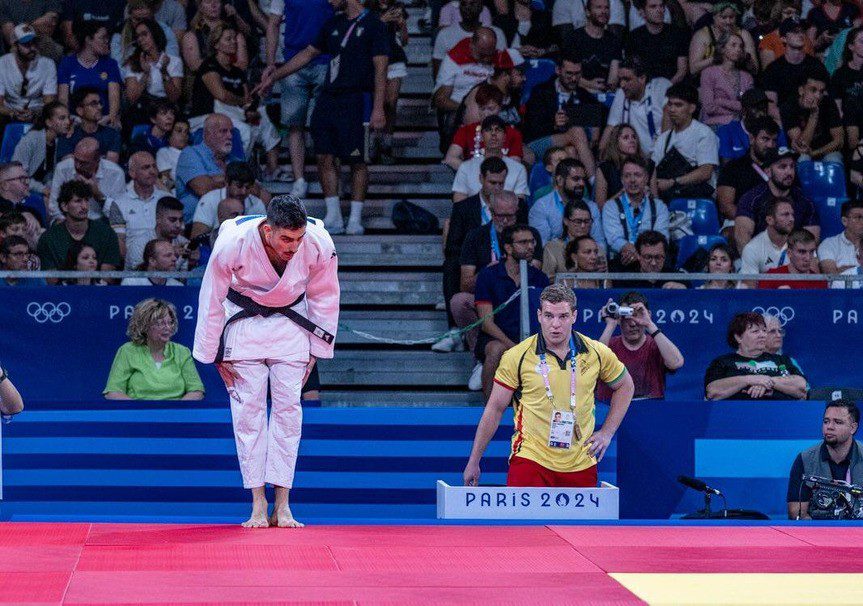
Julien Brulard – BJJ Globetrotters
What are the things you enjoy about travelling?
Traveling brings a sense of adventure and discovery that I find incredibly fulfilling. I love the opportunity to meet new people from diverse backgrounds and immerse myself in different cultures. Every destination offers unique experiences, from the vibrant streets of bustling cities to the tranquil beauty of remote landscapes.
Teaching judo around the world allows me to share my passion and knowledge, while also learning from others. It’s inspiring to see how judo is practiced and appreciated in different parts of the world. I enjoy the camaraderie and connections formed through the sport, as well as the chance to grow personally and professionally. I feel like I give myself the chance of doing things that I would never have done in my life without this project.
Additionally, the challenges of traveling—navigating new places, adapting to different environments, and overcoming obstacles—are rewarding. They push me out of my comfort zone and make each journey memorable. Overall, traveling enriches my life with new perspectives, friendships, and unforgettable moments.
Can you give us some examples of experiences you had that make it worth traveling and training?
The fact that my travel is based on training and teaching makes every hard moment worth it. If I weren’t teaching judo and Jiu Jitsu, I would probably have been bored already. Doing this, I feel like I have a family everywhere waiting for me; it’s indescribable.
I have had so many good experiences. For instance, I can mention the classes I gave in Nepal, where judo is primarily humanitarian, so I taught mostly in orphanages. I was welcomed by those kids like a king, always covered in flower necklaces, food, and beautiful smiles. I taught in one orphanage for kids who lost their parents during the 2015 earthquake. They organized a ceremony and applied the traditional red tilak on my forehead—it was memorable! The next day, I watched a documentary on Netflix about the earthquake called “Aftershock.” I couldn’t stop thinking that those kids I was with the day before were in it. I just broke into tears on the back of the bumpy bus going from Kathmandu to Pokhara.
What has so far been the most surprising experience for you when traveling?
The possibilities available to us are truly limitless. Before starting this project, I was a bit pessimistic. The climate and mood in France felt negative, at least to me. I never would have believed that I would have so many opportunities just by traveling and teaching judo. I’ve been offered head coach positions in some of the strongest judo countries in the world. Today, I’m preparing to coach an athlete at the Olympics. I’ve had discussions with presidents of countries about developing sports, and I’ve met extremely influential people—some very good and some terribly bad.
I’m constantly surprised by the experiences I’ve had, even though I’ve worked extremely hard for them and sacrificed a lot in my life. The journey has shown me that the world is full of possibilities if we dare to pursue them.
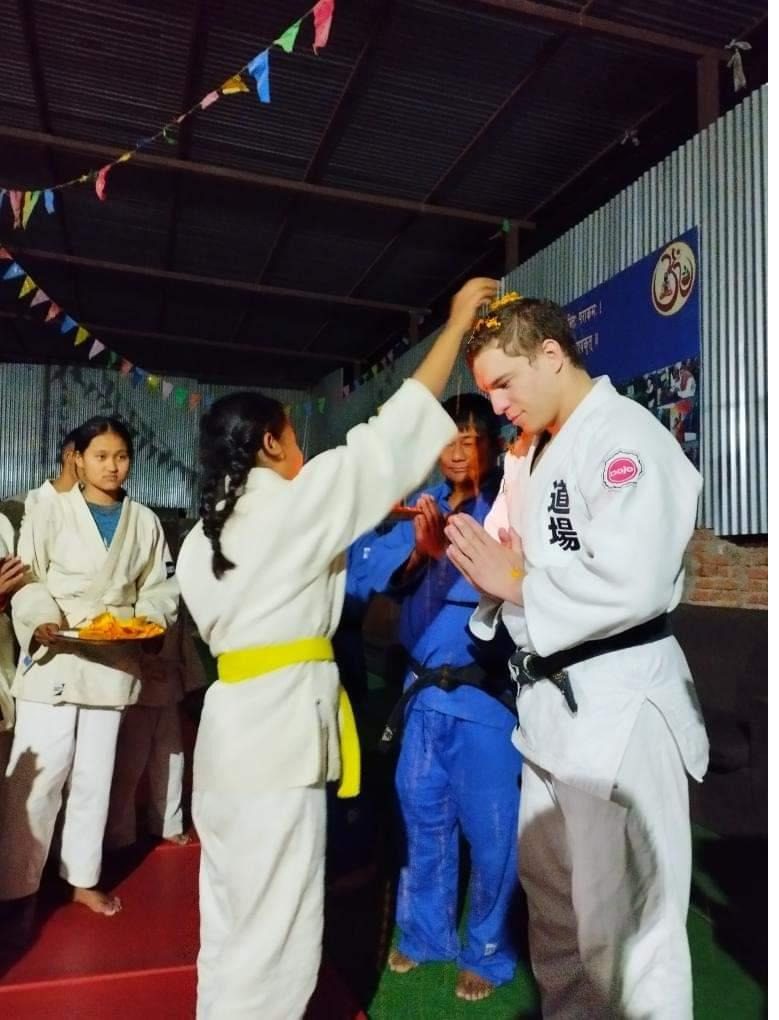
Julien Brulard – BJJ Globetrotters
Are you a budget traveller – and if so how do you plan for a cheap trip?
I’m a budget traveler on a million-dollar project. Traveling to 197 countries in 10 years is incredibly expensive. While I could adopt an extreme budget travel approach, I also aim to develop the project further, with hopes of building academies around the world or organizing special training camps, perhaps even in collaboration with you!
I plan my trips based on several factors. Firstly, I have a small monthly budget thanks to the support from people on Patreon, which allows me to teach judo for free everywhere—particularly in less affluent countries.
The process is the same in every country: I contact the local judo federation or reach out to my contacts there to explore potential collaborations. This often results in staying at academies or with local hosts, significantly reducing costs.
In countries where I can afford the cost of living, I plan to stay in a hotel one day a week or more. This gives me a chance to rest and handle administrative work that I couldn’t manage during the week.
For me, making a trip affordable depends on my contacts and organization. With the right connections, I can make even the most ambitious journey more feasible.
If you were to pass on travel advice to your fellow Globetrotters, what would it be?
There are many things I would recommend:
- Go Off the Beaten Path: Some of the most incredible experiences are in the lesser-known places. Immerse yourself completely, learn the language or at least some of it, and participate in local traditions. This brings us to the second recommendation:
- Be Open-Minded and Tolerant: Traveling for extended periods or to many places means you’ll encounter people with different or even opposing views. Learning how to communicate (or not) with these people is crucial. Remember that you’re not at home and need to stay humble. Even if you disagree with something or find it extreme, sometimes it’s best to just let people talk.
- Embrace Flexibility: If you’re planning a budget and long-term travel like I do, flexibility is key. Everything changes constantly, and your plans are temporary. This requires readiness and adaptability. Not everyone can tolerate such a life, so be prepared for it.
- Stay with Your “Family”: Whether it’s your jiu-jitsu or judo family, when you travel, find a gym, and after a few classes you’ll be part of the family. This not only enhances your travel experience, but can also save you from tricky situations.
- Traveling with a Community: Traveling within a community is intense. Training can be hard when you’re not used to it, but meeting new people and new teams means frequent hellos and goodbyes. It’s an intense lifestyle but also leads to some of the best parties of your life!
- Safety First: Be wise and cautious. Travel with your passport in your hand luggage, avoid illegal substances or shady activities, and train hard but smart.
